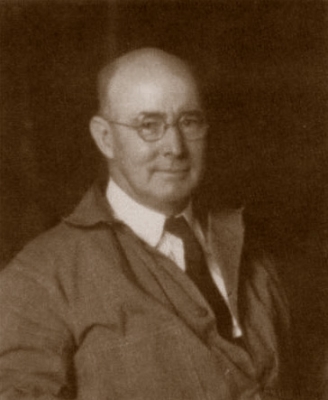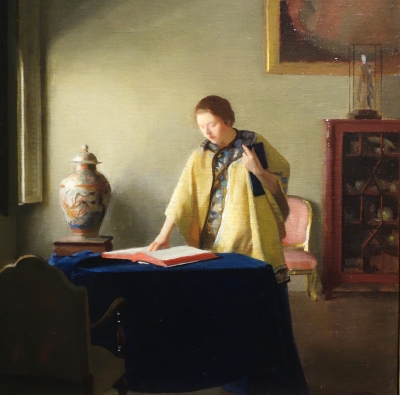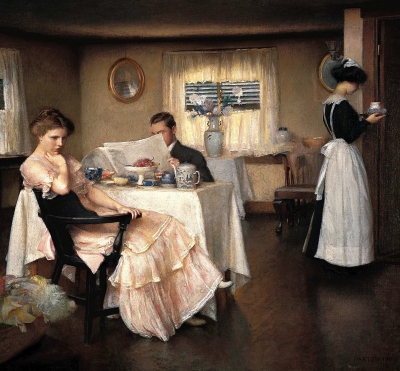
William Mc Gregor PAXTON (1869-1941)
William McGregor Paxton (June 22, 1869 – 1941) was an American Impressionist painter.
Like many of his Boston colleagues, Paxton found inspiration in the work of the seventeenth-century Dutch painter Johannes Vermeer. Paxton was fascinated not only with Vermeer's imagery, but also with the system of optics he employed. He studied Vermeer's works closely, and discovered that only one area in his compositions was entirely in focus, while the rest were somewhat blurred. Paxton ascribed this peculiarity to "binocular vision," crediting Vermeer with recording the slightly different point of view of each individual eye that combine in human sight. He began to employ this system in his own work, including The New Necklace, where only the gold beads are sharply defined while the rest of the objects in the composition have softer, blurrier edges. This effect is even more noticeable in Paxton's 1915 painting entitled Nude, which shows a young woman seated on a blue dress that is spread across the seat of a backless divan.
William McGregor Paxton (June 22, 1869 – 1941) was an American Impressionist painter.
Like many of his Boston colleagues, Paxton found inspiration in the work of the seventeenth-century Dutch painter Johannes Vermeer. Paxton was f ...



 - la veste jaune.jpg)
 - la veste jaune.jpg)
. Metropolitan Museum of Art, New York NY@@@.jpg)
. Metropolitan Museum of Art, New York NY@@@.jpg)
. Private collection @@@.jpg)
. Private collection @@@.jpg)

